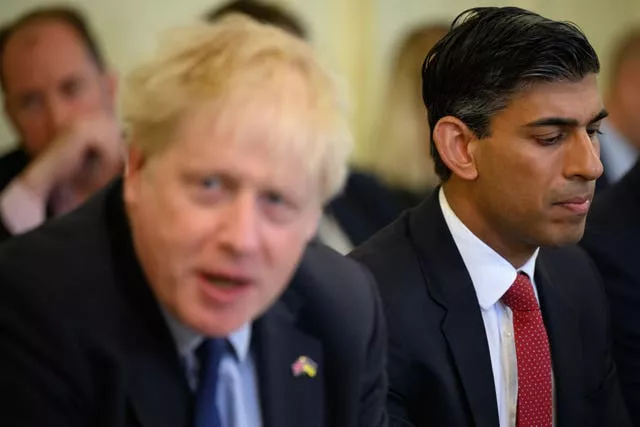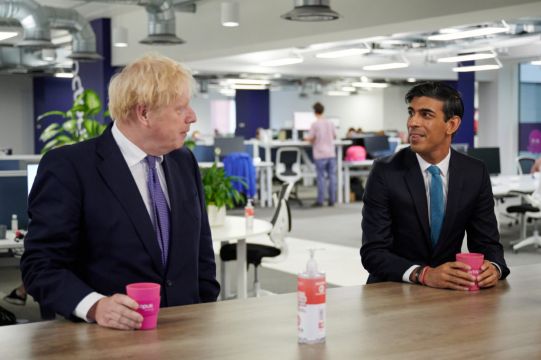Rishi Sunak insisted his delay on net zero policies was not a “short-term decision” aimed at winning the next general election.
The British prime minister, who has faced criticism from Tories including Boris Johnson, said slowing measures including a shift to electric cars were “not about the politics”.
Mr Sunak has come under fire from the environmental wing of the Conservative Party, but he has also delighted Tories who fear the cost of net-zero policies could lose them votes at the election expected next year.
Because the upfront cost for families is still high, and to give us more time to prepare, we’re easing the transition to electric vehicles.
That means you’ll still be able to buy new petrol and diesel cars and vans until 2035, in line with countries like Germany and France. pic.twitter.com/4nPiQ0gvGc— Rishi Sunak (@RishiSunak) September 20, 2023
Advertisement
But Mr Sunak said: “No, this is not actually about politics. This is not about the politics.
“This is about doing what’s right for the country in the long term.”
Polling has suggested Britons support measures to tackle climate change – but the balance shifts when asked their opinion if such actions dealt a blow to their personal finances.
The prime minister said that as chancellor, he was already critical of Mr Johnson’s government being “on autopilot to just adopt” green policies.
“And now as prime minister, I’ve got an opportunity to change things and what I don’t want to do is make yet more short-term decisions, easy ways out and ultimately not be straight with the country about what those mean for them.”
But he ruled out the prospect of a public vote on the commitment to reach net-zero by 2050: “I think we have had enough referendums, quite frankly.”

Mr Johnson warned Mr Sunak not to “falter” on key climate crisis initiatives, arguing that heaping uncertainty on businesses could drive up prices for British families.
The former prime minister told the Conservative leader that he cannot afford to “lose our ambition for this country”, as he argued policies were generating jobs and driving growth.
The car industry has also reacted angrily, with Ford warning that delaying the ban on new petrol and diesel vehicles will “undermine” its needs from the Government.
In a statement, Mr Johnson said that businesses “must have certainty about our net zero commitments”.
“We cannot afford to falter now or in any way lose our ambition for this country.”
Today we're adopting a new approach to Net Zero that is pragmatic, proportionate and realistic – meeting upcoming targets without adding burdens to working families.
We have led on reducing emissions faster than any other major economy.
A thread🧵 pic.twitter.com/ndGZAMq000— UK Prime Minister (@10DowningStreet) September 20, 2023
It was Mr Johnson who in 2020 announced plans to bring the ban on new cars being powered solely by fossil fuels to 2030 – something Mr Sunak delayed until 2035.
Mr Johnson’s ally and prominent Tory environmentalist Lord Zac Goldsmith went as far as to demand a general election over the “economically and ecologically illiterate decision”.
The peer, who quit as environment minister in June with a scathing attack on Mr Sunak’s environmental “apathy”, described it as a “moment of shame” for the UK.
However, not all of Mr Johnson’s allies agreed.
Sir Jacob Rees-Mogg, who served in his cabinet as one of his most ardent supporters, called Mr Johnson a “net-zero zealot”.
He backed Mr Sunak’s plans to water down measures, with the British prime minister still voicing commitment to reaching carbon neutrality in 2050.
And former prime minister Liz Truss urged Mr Sunak to go further by ending the windfall tax on oil and gas firms and lifting the fracking ban.
“I welcome the delay on banning the sale of new petrol and diesel cars as well as the delay on the ban on oil and gas boilers. This is particularly important for rural areas,” she said.
“I now urge the government to abolish the windfall tax on oil and gas and lift the fracking ban, which would reduce people’s energy bills and make the UK more competitive.”
The Conservative Environment Network warned Mr Sunak his “unnecessary” watering down of green policies “risks damaging the Conservative Party’s hard-won reputation on environmental issues”.
Director Sam Hall said: “Today the PM has changed little of substance besides delaying the transition to electric cars.
“Sticking to the 2030 deadline would have saved UK motorists money, supported car firms that have invested in new EV factories, and unlocked crucial investment in charge point infrastructure. New measures to speed up grid infrastructure and incentivise heat pump uptake are very welcome, however.
“But the framing of today’s announcements has created an unhelpful impression for voters that the party is backtracking on climate action.”







